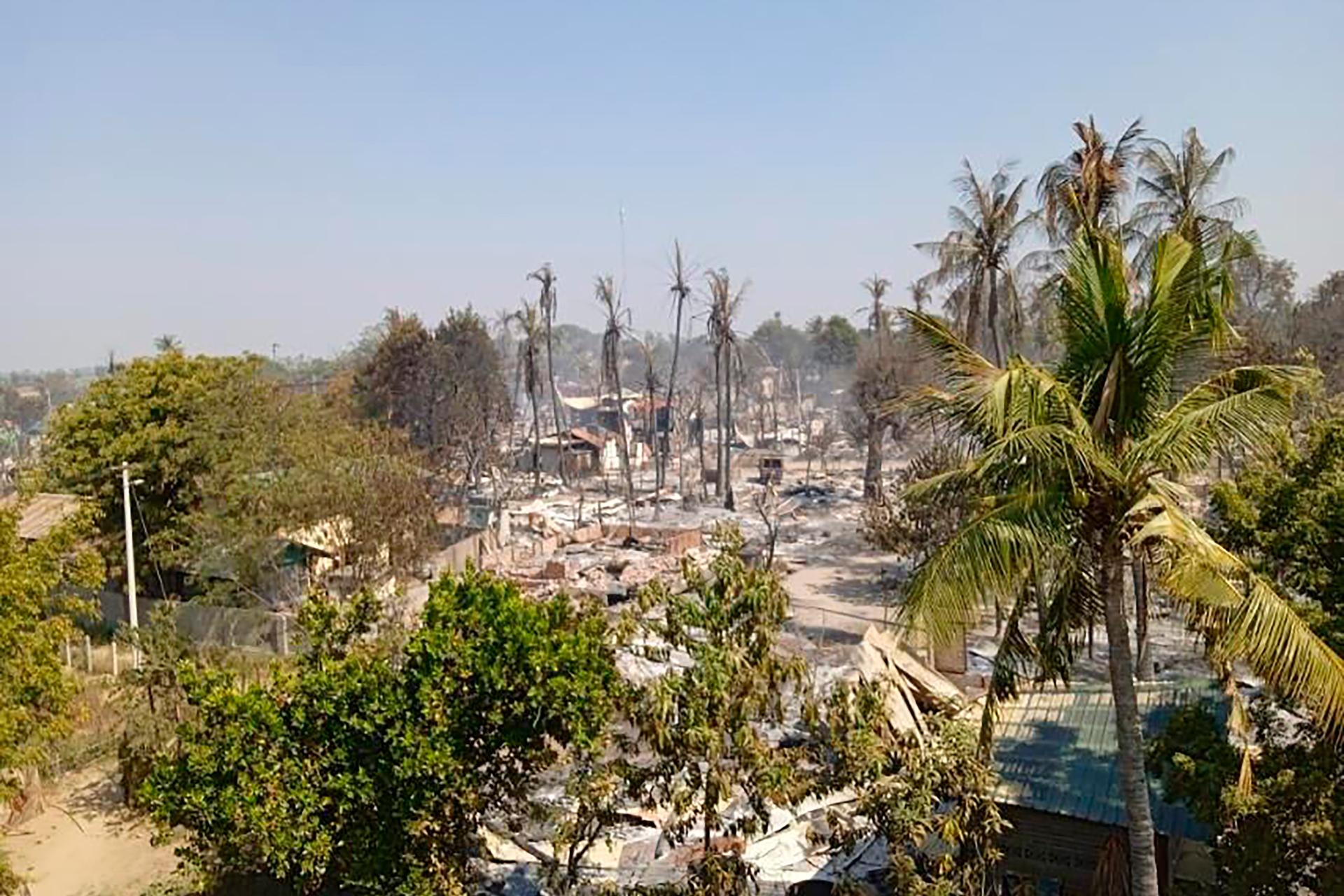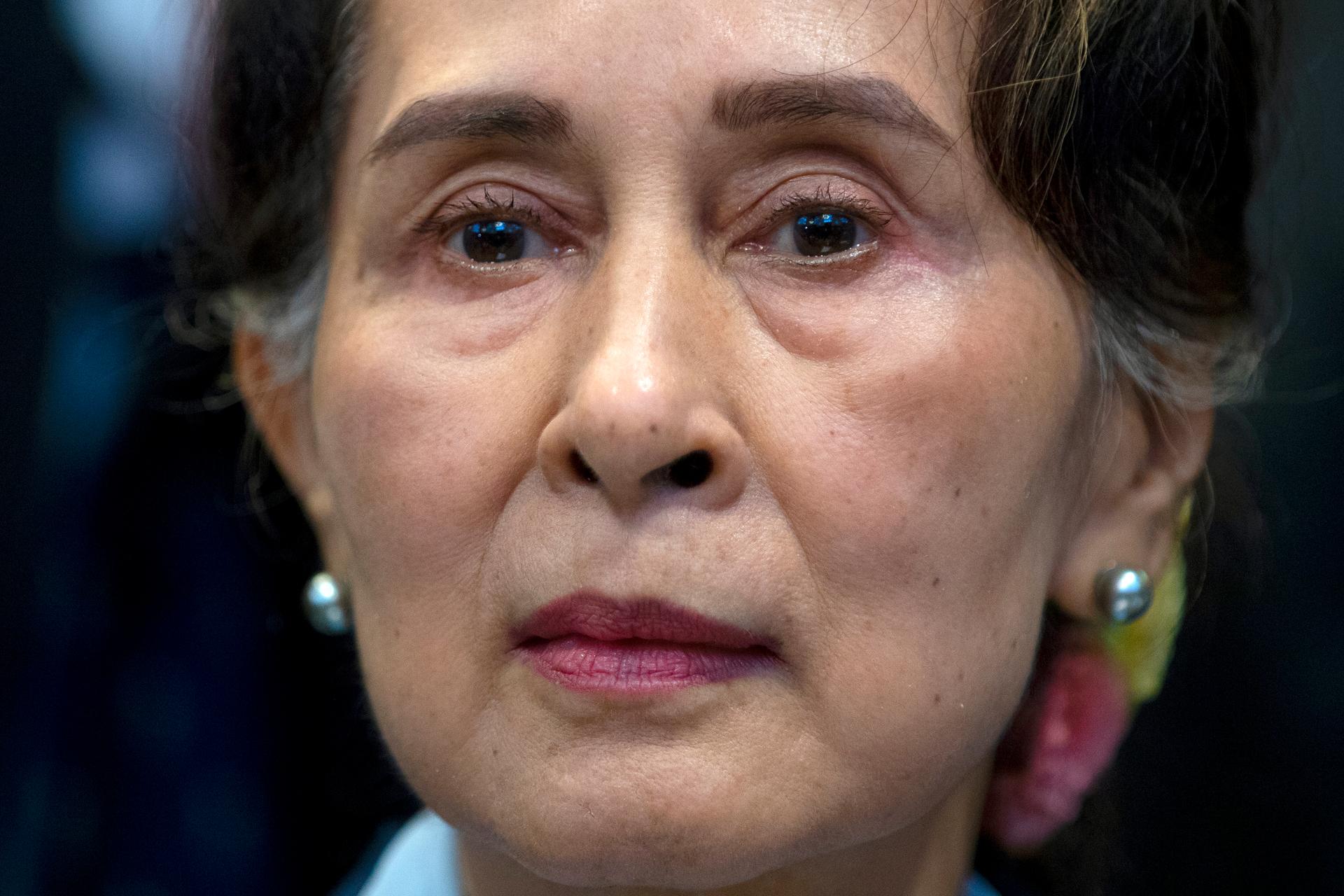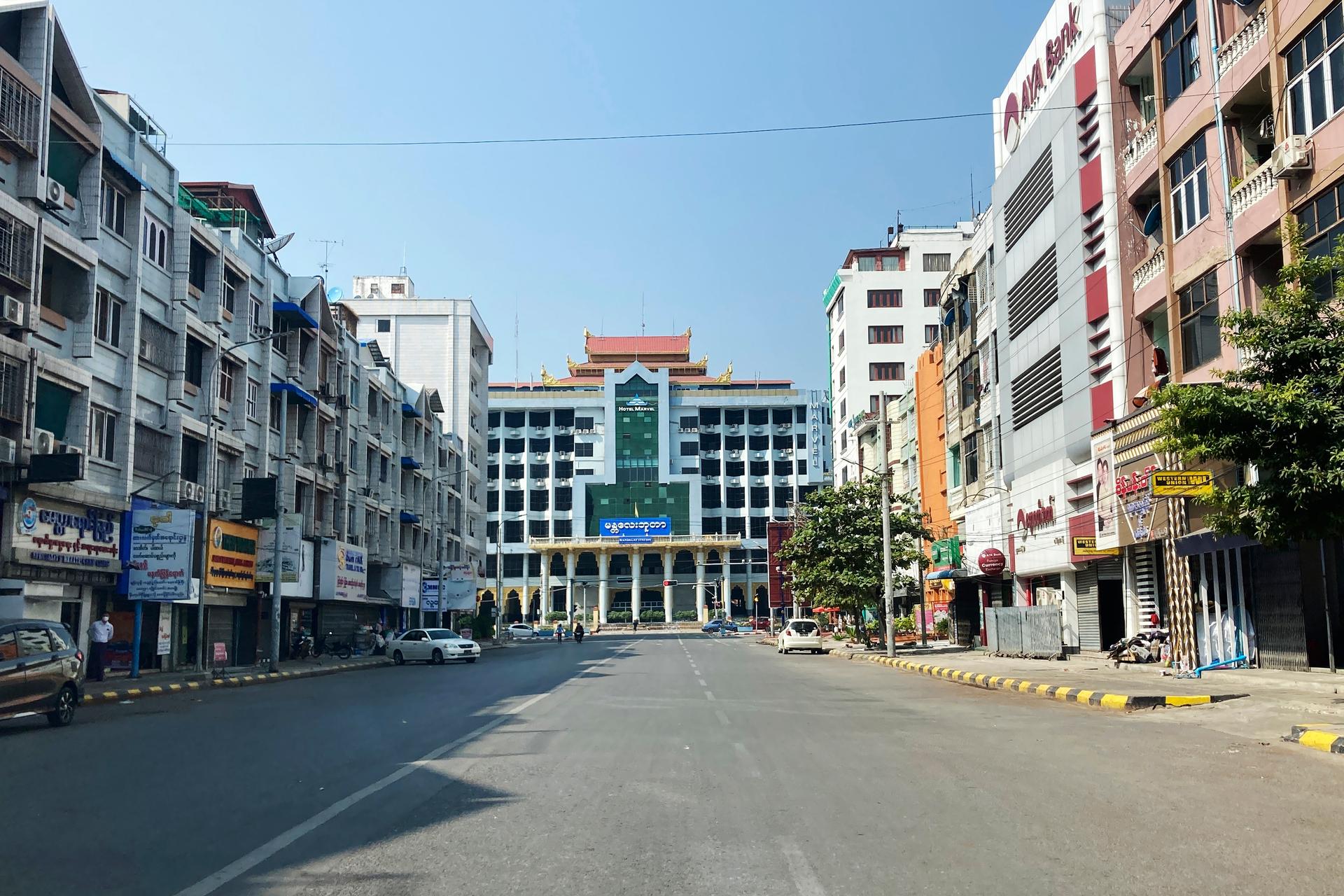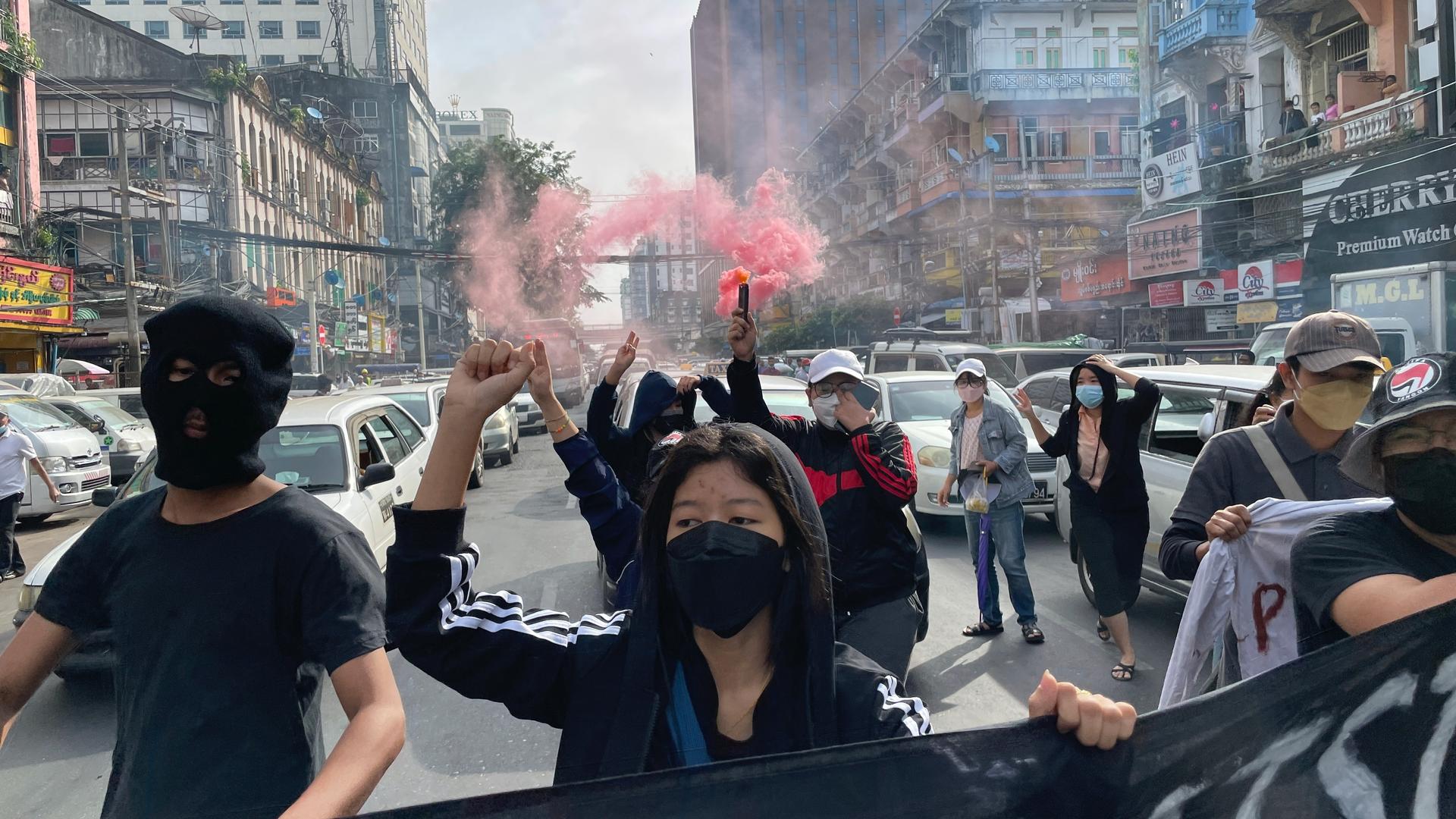From bookworm to bomb maker: The evolution of a Myanmar revolutionary
Editor’s note: Part I of the broadcast story is above. Listen to Part II of the story here.
Ah Too was never a tough guy. More of a bookworm. He’d always enjoyed building things so he went to college for engineering and later scored a great job in Yangon, Myanmar’s largest city, with a foreign engineering firm.
Anyone who came across Ah Too a little more than a year ago would’ve seen a skinny, sleep-famished guy hunched over a laptop. He was a workaholic. No time for a girlfriend. He saw his buddies maybe once a month. But all that hustle brought him closer to his dream. He was fixated on building his credentials until one day he could live and work abroad.
Related: US journalist jailed in Myanmar for nearly six months is freed
“As soon as the coup happened,” he said, “all of that was gone.”
On Feb. 1, 2021, the army coup d’etat came down like a hatchet, cleaving Ah Too’s life into two chapters: before the coup and after. He has learned much about himself in the past 12 months. He is braver than he ever imagined — even capable of taking human life if pushed to extremes by a military that, since the 1960s, has held his country in a stranglehold.
Ah Too’s resistance started off mild. Each night, along with innumerable others across Yangon, he would bring pots and pans over to his window and whack them with all his might. The masses made a racket to vent their rage. They hated the army for raiding government offices and locking up elected officials, including the political icon Aung San Suu Kyi, the most famous person from Myanmar ever born.
The millennials and Generation Zers were especially livid. Their parents and grandparents had only known totalitarian rule. But they were promised a break from the past. Roughly 10 years ago, the military loosened its grip a bit, promising elections, more free speech and basic dignities.
US President Barack Obama flew to Yangon in 2012 and proclaimed: “Something is happening in this country that cannot be reversed.”
At the time, it really felt that way — at least in the cities. In the borderlands, the army continued brutally tormenting ethnic minorities, as they had for decades, but life for urban lowlanders did improve. For the first time, the public was allowed to buy cheap mobile phones, open Facebook accounts and even protest in the streets without getting shot.
But last year, the generals changed their minds, deciding they wanted total power after all. The “something” that Obama observed was easily reversed.
Shortly after the coup, massive anti-coup protests broke out across the country. Police and troops responded by mowing down peace marchers with assault rifles, killing at least 1,500 civilians to date. That caused Ah Too to think: They murder us en masse, and we just beat pots and pans?

He wanted to do something. So, he got some friends together to go burn down a local district office. The posse waited until nightfall and crept toward the building. When two of his friends ambled under a streetlight’s glow, he urged them to stick to the shadows.
“I told them, ‘Try to stay invisible!’”
Then two gunshots rang out. Both friends dropped to the pavement. No one had seen an army sniper crouching in a nearby tower.
Ah Too and his friends rushed their wounded pals to a hospital. One died. The other lost a leg. Ah Too’s rage was inconsolable. Someone in the crew suggested going back to the scene of the shooting, staking out that tower, and ambushing the sniper.
“We found the sniper’s location,” Ah Too said, “and just waited until he climbed down.”
Related: Souring on peace marches, Myanmar protesters seek weapons
Eventually, he did, oblivious to the ambush. When the sniper’s feet hit the ground, Ah Too and the others pounced, laying into him with swords, slashing at his arms. The sniper fired wildly before he dropped the gun. This time, his bullets missed. Ah Too forced the sniper to the ground and helped to finish him off.
He’d killed a soldier. There was no turning back now.
Ah Too was a revolutionary.
Before fleeing the city, Ah Too told his parents what he’d done. His father warned him: You are courting a premature death. But Ah Too knew that already. It was time for him to venture toward the mountains into a “black zone,” army lingo for areas beyond their control.
On official maps, Myanmar looks like a single, cohesive country. This is deceptive. The army rules the core of the country, a swath of dry plains and rain-soaked deltas. But the mountainous perimeter belongs to various minigovernments with their own leaders, flags, anthems and armies.
There are many such statelets run by ethnic minority groups such as the Kachin, Karen, Arakan, Wa, Shan and others. Some even produce their own electricity and issue ID cards.
Myanmar’s formal borders were drawn long ago by the British Empire, which brought together dozens of different civilizations under one roof, called it a colony (Burma) and ruled it for more than 120 years. The colony became an independent country in 1948 — but since then, many minority groups have fought to go their own way. Today, Myanmar’s military is obsessed with dominating every inch inside the old colonial boundaries it inherited from the British.
This ideology animates the military: a conviction that an elite circle of lowlanders from the majority race, Burmese, should dominate unruly minorities at the fringe.
In Myanmar’s public school textbooks, minorities are depicted as simple folks in need of discipline. In pro-military newspapers, their guerrilla defense forces are called “terrorists.” But since the coup, this ideology has withered among the public. Young Burmese are acknowledging: We are not superior to armed minorities; rather, we need them, for they possess weapons, fighting prowess and territory, all key ingredients to revolution.
Related: Aung San Suu Kyi’s lawyer sees little chance for a fair trial
Tens of thousands of Burmese urbanites have poured into jungles to seek training from Indigenous guerrillas, Ah Too included. After escaping Yangon, he settled in with a liberation force in the eastern hills — he prefers not to make public the exact location — and took on a new revolutionary name: Ah Too.
That is where, for the first time, an M-16 was pressed into his trembling hands. The oblong piece of black metal, an instrument of death, made him sweat. He told himself: You must unlearn this notion that this gun is frightening or strange.

Ah Too and other urban trainees were led to a clearing in the jungle. A guerrilla commander held up a photo of Gen. Min Aung Hlaing — the army chief and coup plotter — and tacked it to a distant post.
“He made a deal with us,” Ah Too said. “If we could shoot Min Aung Hlaing in the head, we’d get more potatoes for dinner.”
“We were all motivated by anger,” he said. “We’d all shout ‘Min Aung Hlaing, motherfucker!’ when training.”
Some of the city kids wilted, struggling with the scant food, the daily regimen of 100 pushups and sleeping in bamboo barracks. But most persevered. Ah Too felt strangely at peace.
“As an engineer, I used to sleep two hours a night. Maximum four,” he said. “Now, I was getting real sleep, as long as I wasn’t on night watch.”
Ah Too suspected he was not elite commando material. Some of the heavier artillery pieces strained his muscles. But that was OK. Because Ah Too soon realized that the skills he’d nourished in his previous life would not go to waste in that rain-soaked jungle.
He’d always loved building things. Why not build explosives?
In recent months, across Myanmar’s lowland towns and cities, junta officials have lived in fear of bombs. Explosions have ripped through police stations and checkpoints, knocked over regime-owned cell towers and killed regime officials.
The bombs are laid by underground cells, many composed of Burmese men and women who’ve returned from guerrilla training in the highlands. They are assassins in plainclothes, filtering back into their old neighborhoods in the heavily defended heartland.
In Yangon, there is a glimmering, golden pagoda shaped like a Hershey’s Kiss: Sule Pagoda, a mainstay of postcards and, in more peaceful times, tourist selfies. In its shadow lies a cluster of administrative buildings. One is a police station. In late September, an explosion tore through the police station. Ah Too claims he had a role in designing that bomb. (The World cannot verify his claims.)
Ah Too says he uses encrypted chat apps to teach urban cells how to build explosives using whatever materials they can acquire. “It’s stressful,” he said. “Every time we finish a mission, we plan the next one, always knowing our people may be arrested at any time.”

Arrest can lead to torture, torture can lead to death. Even mild dissidence can result in maimings at police hands. The junta brazenly publishes mugshots of suspects with bloodied, swollen faces: a warning that defiance brings disfigurement.
To counter the resistance, the army has gone to gruesome extremes: torching whole neighborhoods and immolating women and children.
Waving placards isn’t going to stop them, Ah Too says.
“We’ve had to upgrade our strategy,” he said. “This is not the time for peace marches.”
He invests great hope in the uniting of lowlanders and borderlanders — the army’s worst nightmare.
Western governments, especially the US, have cheered on nonviolent protests. Said the US ambassador to the United Nations, Linda Thomas-Greenfield, shortly after the coup: “They’re marching in the streets. They are raising red balloons and beating pots and pans. And they are demanding their democracy back.”
They have less to say about armed struggle. The diplomatic set seems stuck on the old script: one in which civilians demand basic rights, get shot, and the White House praises their “courage and determination.”
For decades, the face of the pro-democracy struggle was Aung San Suu Kyi, the Oxford-educated political leader whose words swayed policymakers from Washington to London to Tokyo. She is now in military detention. Aged 76, she may never be free, not if the army holds power.
The new face of the pro-democracy movement is someone like Ah Too. There are multitudes like him: citizens convinced they will never know peace until this military is swept from this Earth.
“Everyone wants democracy like you have in America,” Ah Too said. “I’ll sacrifice my life for it.”
But what he really wants is more firepower. The revolution is high on morale, low on rifles and bullets.
Ah Too, ever the workaholic, will not laze around in expectation of handouts. In the coming months, he intends to return to the lowland cities and connect with urban assassination cells to upgrade their bomb-making skills. If he lives to see the revolution succeed, he hopes to travel and catch up on his reading.
Maung Moe is a journalist from Myanmar operating under a professional name, not the one on his identity card because reporting on the military is extremely dangerous.
